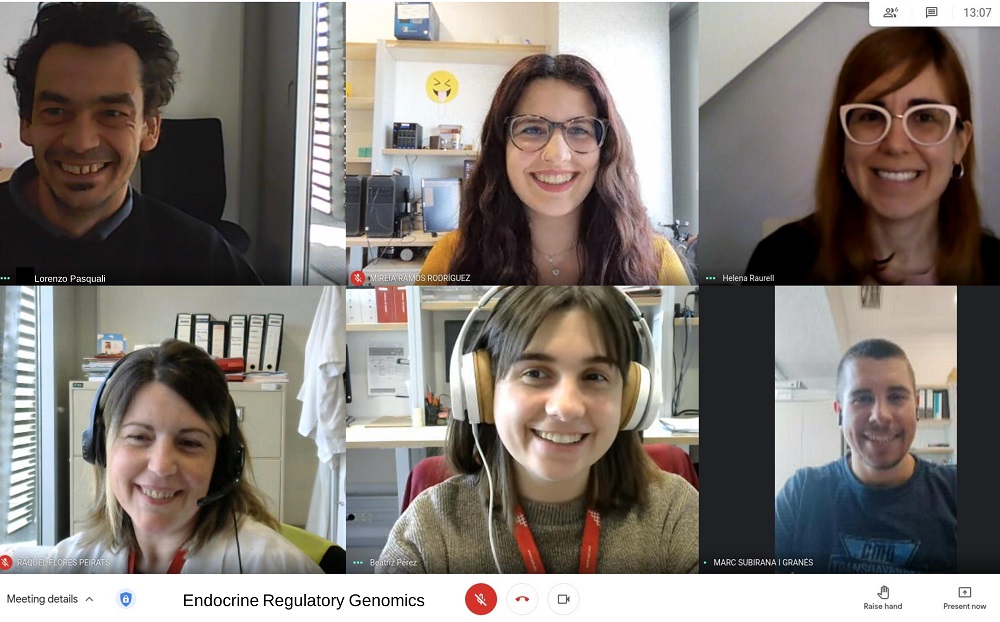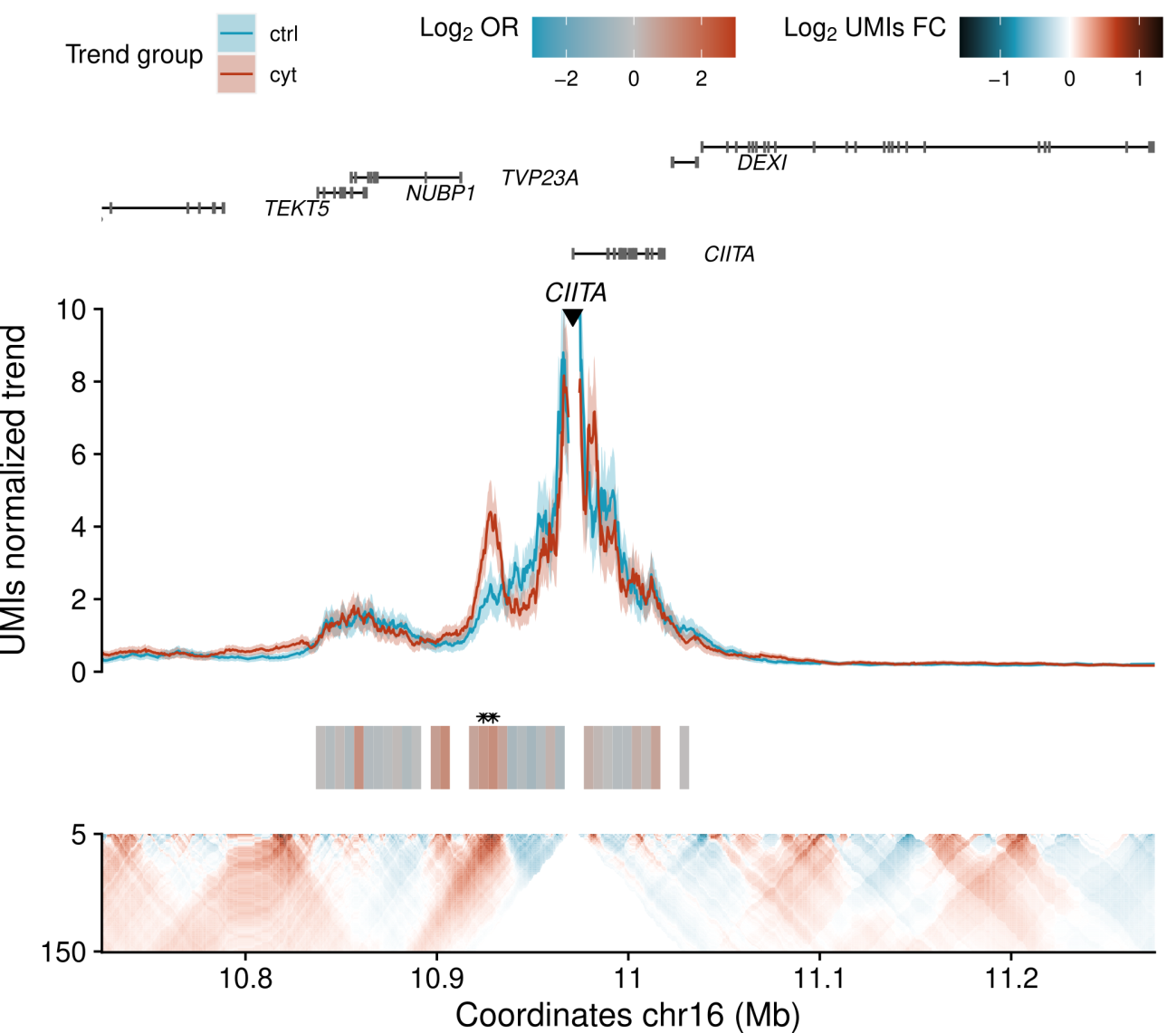Endocrine Regulatory Genomics
Lorenzo Pasquali

Group website
Research Outline
Our group combines molecular genetics and bioinformatics approaches to understand the regulatory mechanisms that control function and cell fate. We are currently studying the genomic regulation of the insulin-producing pancreatic β-cells. Our research is focused on the regulatory changes that underlie different forms of diabetes and loss of cell fate in neoplastic conditions.
Research Lines
Deciphering β-cell type 1 diabetes mechanisms and gene targets
The human genome contains instructions to generate a vast number of cell fate programs and each cellular state (including disease states) utilizes distinct sets of noncoding genomic regulatory regions. Knowledge of such programs can be exploited to decipher mechanisms of tissue responses to external stimuli and defects underlying human disease.
We are currently exploring the impact of immune stress on the chromatin landscape of insulin-producing pancreatic β-cell and its implication in type 1 diabetes.
Gene regulatory networks in pancreatic islets and insulinoma:
The endocrine pancreas hosts some of the most debilitating and deadly diseases, including pancreatic neuroendocrine tumors and diabetes mellitus. We are currently acquiring knowledge of genetic and epigenetic mechanisms underlying pancreatic neuroendocrine tumor development. We aim in dissecting the contribution of somatic mutations and epigenetic factors in the loss of cell identity that leads to the development of pancreatic neuroendocrine tumors.
Team during 2019-20
PhD students: Richard Norris, Marc Subirana Granés, Beatriz Pérez González
Postdocs: Mireia Ramos Rodríguez
Technicians: Helena Raurell Vila, Raquel Flores Peirats
Selected Publications
- Eizirik DL, Pasquali L, Cnop M. (2020) Pancreatic β-cells in type 1 and type 2 diabetes mellitus: different pathways to failure. Nat Rev Endocrinol.;16(7):349-362. doi: 10.1038/s41574-020-0355-7. PMID: 32398822.
- Colli ML, Ramos-Rodríguez M, Nakayasu ES, Alvelos MI, Lopes M, Hill JLE, Turatsinze JV, Coomans de Brachène A, Russell MA, Raurell-Vila H, Castela A, Juan-Mateu J, Webb-Robertson BM, Krogvold L, Dahl-Jorgensen K, Marselli L, Marchetti P, Richardson SJ, Morgan NG, Metz TO, Pasquali L, Eizirik DL. (2020) An integrated multi-omics approach identifies the landscape of interferon-α-mediated responses of human pancreatic beta cells. Nat Commun. 22;11(1):2584. doi: 10.1038/s41467-020-16327-0. PMID: 32444635.
- *Bueno-Costa A, Piñeyro D, Soler M, Javierre BM, Raurell-Vila H, Subirana-Granés M, Pasquali L, Martinez-Climent JA, Esteller M. (2020) B-cell leukemia transdifferentiation to macrophage involves reconfiguration of DNA methylation for long-range regulation. Leukemia. 34(4):1158-1162. doi: 10.1038/s41375-019-0643-1. Epub 2019 Nov 12.PMID: 31719676.
- *Miguel-Escalada I, Bonàs-Guarch S, Cebola I, Ponsa-Cobas J, Mendieta-Esteban J, Atla G, Javierre BM, Rolando DMY, Farabella I, Morgan CC, García-Hurtado J, Beucher A, Morán I, Pasquali L, Ramos-Rodríguez M, Appel EVR, Linneberg A, Gjesing AP, Witte DR, Pedersen O, Grarup N, Ravassard P, Torrents D, Mercader JM, Piemonti L, Berney T, de Koning EJP, Kerr-Conte J, Pattou F, Fedko IO, Groop L, Prokopenko I, Hansen T, Marti-Renom MA, Fraser P, Ferrer J. Human pancreatic islet three-dimensional chromatin architecture provides insights into the genetics of type 2 diabetes. Nat Genet. 2019 Jul;51(7):1137-1148. doi: 10.1038/s41588-019-0457-0. PMID: 31253982.
- *Ramos-Rodríguez M, Raurell-Vila H, Colli ML, Alvelos MI, Subirana-Granés M, Juan-Mateu J, Norris R, Turatsinze JV, Nakayasu ES, Webb-Robertson BM, Inshaw JRJ, Marchetti P, Piemonti L, Esteller M, Todd JA, Metz TO, Eizirik DL, Pasquali L (2019) The impact of proinflammatory cytokines on the ß-cell regulatory landscape provides insights into the genetics of type 1 diabetes Nat Genet. 2019 51(11):1588-1595. doi: 10.1038/s41588-019-0524-6. PMID: 31676868.
* Research carried out at IGTP and JCI research institutes.
Other relevant information
Prizes:
Lorenzo Pasquali was awarded the Premi Gonçal Lloveras i Vallès 2020 from the Catalan Diabetes Asociation
Mireia Ramos Rodríguez was awarded the prize for the Best Research Paper by a Predoctoral Student 2020 by the Catalan Institute of Health

View of the 3D chromatin contacts of CIITA promoter obtained by UMI-4C performed in islets exposed or not to pro-inflammatory cytokines. A heatmap under the 4C track represents the log10 odds ratio (OR) of the UMI-4C contacts difference in cytokine vs. control and a small black diamond on top of the contact heatmap indicates a significant difference in contacts between cytokine-treated and control samples (Chi-squared P<0.05).
